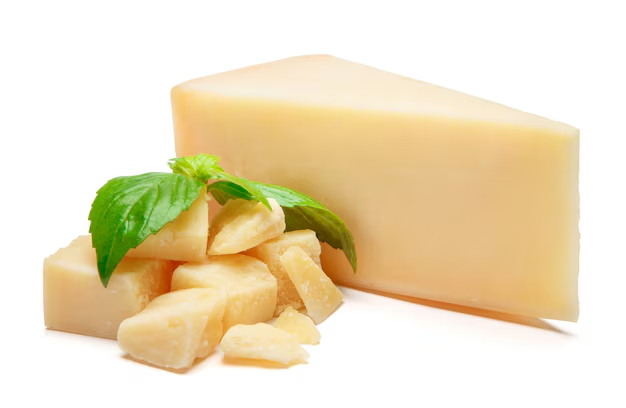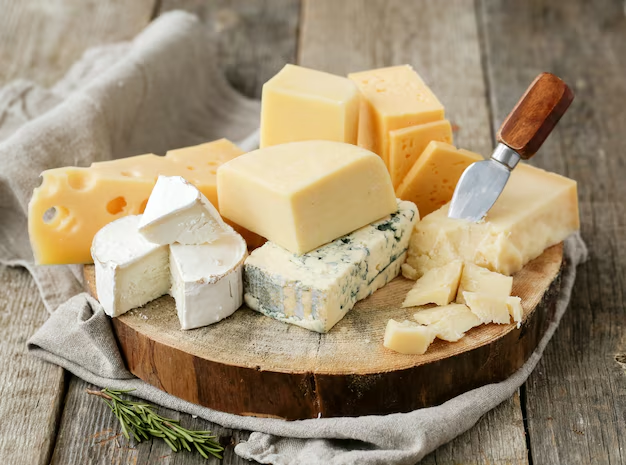Cholesterol is a hot topic in discussions about diet and heart health. Cheese, a beloved food worldwide, often finds itself in the spotlight of this debate. Is cheese bad for cholesterol?
The answer isn’t straightforward. While cheese provides essential nutrients like calcium and protein, it also contains saturated fats, which may impact cholesterol levels. This article explores the nuances of cheese’s effects on cholesterol, helping you make informed dietary choices.
What is Cholesterol and How Does Food Impact It?
Cholesterol is a fatty substance in your body that serves essential functions, such as building cell membranes and producing hormones. However, not all cholesterol is created equal.
LDL vs. HDL Cholesterol
- LDL (Low-Density Lipoprotein): Known as “bad” cholesterol, LDL contributes to plaque buildup in arteries. High levels increase the risk of heart disease and stroke.
- HDL (High-Density Lipoprotein): Dubbed “good” cholesterol, HDL helps remove excess cholesterol from the bloodstream, reducing heart disease risk.
Role of Saturated Fats in Cholesterol Levels
Saturated fats, commonly found in animal products, influence cholesterol levels by raising LDL cholesterol. Diets high in saturated fats are linked to higher risks of cardiovascular issues. Cheese, being a source of saturated fats, often comes under scrutiny in this context.
Does Cheese Raise Cholesterol Levels?

Does cheese raise cholesterol levels? This question sparks much debate. Cheese contains varying amounts of saturated fats, which can elevate LDL cholesterol. However, the effects aren’t uniform across all types of cheese or individuals.
What Studies Show
- A 2018 study published in the American Journal of Clinical Nutrition found that moderate cheese consumption didn’t significantly raise LDL levels in healthy individuals.
- Other research suggests that cheese may have a neutral or even positive impact on cholesterol, possibly due to its calcium and protein content, which may offset the effects of saturated fat.
How Does Cheese Affect LDL Cholesterol?
The way cheese affects LDL cholesterol depends on factors like its type, portion size, and individual metabolism. Hard cheeses, such as cheddar, often have higher fat content compared to fresh options like ricotta or mozzarella.
Low-Cholesterol Cheese Options
Choosing the right cheese can make a big difference if you’re concerned about cholesterol. Low-cholesterol cheese options are available for those looking to reduce dietary cholesterol without giving up this dairy delight.
Which Cheeses Are Lowest in Cholesterol?
- Mozzarella (Part-Skim): Lower in fat and cholesterol, making it a versatile choice for many dishes.
- Cottage Cheese: A protein-rich option with minimal fat and cholesterol.
- Ricotta: Another low-fat cheese perfect for spreads or desserts.
- Feta (Reduced Fat): Provides a tangy flavor with less saturated fat.
Plant-Based Alternatives
Vegan cheeses, made from nuts, seeds, or soy, are naturally cholesterol-free. They’re an excellent alternative for those looking to eliminate animal-based fats from their diet entirely.
High-Cholesterol Foods to Avoid
While cheese is often blamed for raising cholesterol, it’s not the only culprit. Many other foods are rich in saturated fats and dietary cholesterol, posing greater risks.
Foods to Watch Out For
- Red and Processed Meats: Sausages, bacon, and fatty cuts of beef are high in both cholesterol and saturated fats.
- Fried Foods: Cooking in oils high in trans fats significantly raises cholesterol levels.
- Baked Goods: Pastries, cookies, and cakes often contain butter or margarine, contributing to unhealthy fat intake.
- Full-Fat Dairy Products: Whole milk and cream have higher cholesterol levels compared to their skim or low-fat counterparts.
Cheese vs. Other High-Cholesterol Foods
When compared to items like butter or red meat, most cheeses fall in the middle range of cholesterol content. For instance:
- 1 ounce of cheddar cheese contains around 30 mg of cholesterol.
- The same amount of butter can contain over 70 mg.
While moderation is key, understanding these comparisons helps contextualize cheese’s place in your diet.
How Does Cheese Affect LDL Cholesterol?
Cheese is a source of saturated fats, which can increase LDL (“bad”) cholesterol levels. However, the impact varies by type of cheese. For instance:
- Cheddar and Parmesan: High in saturated fats and best consumed in small amounts.
- Mozzarella and Ricotta: Lower in saturated fats, making them a better choice for cholesterol-conscious individuals.
Saturated Fats and Their Role
Saturated fats raise LDL cholesterol, which can lead to plaque buildup in arteries. While cheese contributes to this, the extent of the impact depends on the type of cheese, portion size, and your overall diet.
Saturated Fat in Cheese and Cholesterol
Cheese comes in many varieties, each with its own saturated fat content. Let’s look at how some popular options stack up:
Saturated Fat Content in Popular Cheeses
- Cheddar (1 oz): ~6 grams of saturated fat.
- Parmesan (1 oz): ~5 grams of saturated fat.
- Mozzarella (Part-Skim, 1 oz): ~3 grams of saturated fat.
- Cottage Cheese (1/2 cup): ~1 gram of saturated fat.
Low-Fat vs. Full-Fat Options
Switching to low-fat or reduced-fat cheese significantly reduces saturated fat intake. For example:
- Full-fat cheddar: Contains up to 9 grams of fat per ounce.
- Reduced-fat cheddar: Drops to about 4 grams of fat per ounce.
Choosing lower-fat cheeses can help manage cholesterol levels without sacrificing taste.
To Read: Is Fast Food Bad for Cholesterol? Healthier Alternatives
Different Cheese Types for Cholesterol Impact
Cheese comes in many forms, each with unique nutritional characteristics. Here’s how various types affect cholesterol differently:

- Mozzarella: A lower-fat option, especially when part-skim, suitable for heart-healthy diets.
- Cheddar: High in fat and calories, making it less ideal for those monitoring cholesterol.
- Goat Cheese: Contains medium-chain fatty acids, which are easier to digest and may have less impact on LDL levels.
- Cream Cheese: High in saturated fats and should be consumed sparingly.
- Parmesan: Though high in fat, its intense flavor allows for smaller portions.
- Cottage Cheese: Low in fat and cholesterol, ideal for weight management.
- Processed Cheese: Often contains added fats and sodium, which can harm heart health.
Is Vegan Cheese Better for Cholesterol?
Vegan cheeses, made from nuts, soy, or coconut oil, are cholesterol-free since they don’t contain animal products. However, they vary in nutritional quality.
Nutritional Profile
- Pros: Vegan cheeses are free of cholesterol and animal-based saturated fats.
- Cons: Some brands use processed oils or additives, which may not be heart-healthy.
Choose minimally processed vegan cheeses with healthy fats for the best results.
Cheese vs. Butter Cholesterol Impact
Cheese often gets compared to butter when discussing cholesterol. Let’s break it down:
- Cheese: Contains protein and calcium along with fats, making it a more nutrient-dense choice.
- Butter: Almost entirely fat, with high levels of saturated fats and cholesterol.
If you’re deciding between the two, cheese is the better option for a balanced diet.
Tips for Incorporating Cheese into a Low-Cholesterol Diet
Enjoying cheese doesn’t mean compromising heart health. Follow these tips for smarter choices:
- Choose Low-Fat Cheeses: Opt for part-skim mozzarella, cottage cheese, or reduced-fat cheddar.
- Mind the Portion Size: Stick to 1–2 ounces per serving.
- Pair with Heart-Healthy Foods: Add cheese to salads, whole-grain bread, or vegetable dishes.
- Limit Processed Cheeses: Avoid high-sodium, processed varieties.
- Try Plant-Based Options: Vegan cheeses offer cholesterol-free alternatives.
FAQs
Does cheese raise cholesterol levels?
Yes, certain cheeses high in saturated fat can raise LDL cholesterol levels. However, moderation and choosing lower-fat cheeses can mitigate this effect and allow cheese to be part of a balanced diet.
What are low-cholesterol cheese options?
Mozzarella, cottage cheese, ricotta, and some plant-based cheeses are lower in cholesterol. Choosing low-fat or reduced-fat versions further reduces cholesterol intake while preserving the taste and versatility of cheese.
Which cheeses are highest in cholesterol?
Cream cheese, cheddar, and processed cheeses are often high in saturated fat and cholesterol. These types should be consumed in moderation, especially by those managing their cholesterol levels or following heart-healthy diets.
Can cheese fit into a heart-healthy diet?
Yes, cheese can fit into a heart-healthy diet if consumed in moderation. Opt for low-fat versions and pair them with whole grains, vegetables, or fruits for balanced meals that support cardiovascular health.
Is vegan cheese better for cholesterol?
Vegan cheese is typically lower in saturated fat and cholesterol-free, making it a better option for individuals looking to manage their cholesterol levels. However, some varieties may be highly processed and should be consumed mindfully.
Conclusion
Is cheese bad for cholesterol? The answer depends on how much and what type of cheese you consume. While some cheeses are high in saturated fats and may raise LDL cholesterol, others are lower in fat and can fit into a heart-healthy diet. Moderation is key. Pair cheese with nutritious foods like vegetables and whole grains, and consult a healthcare provider for personalized advice. With informed choices, cheese can still have a place on your plate.

